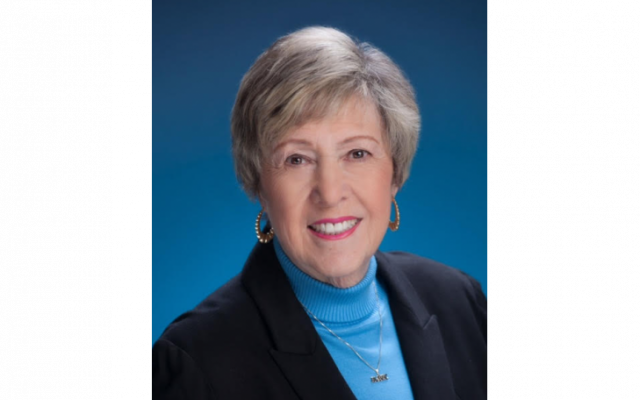Sherry Frank’s Personal History Is Also Atlanta’s Story
Hear from author Sherry Frank in her own words.
For over 50 years, Sherry Frank, who was executive director of the Atlanta office of the American Jewish Committee and helped guide the National Council of Jewish Women here, has been a key witness to the past and an active participant in the making of much of that history. She’s summed up many of her experiences in her book, “A Passion to Serve: Memoirs of a Jewish Activist,” which was published earlier this year. Her appearance at the Book Festival of the MJCCA is being sponsored by the Atlanta Jewish Times.
AJT: There’s a lot of history in this book and it’s all from your unique perspective. What would you say guided you in writing this?
Frank: I wanted to talk about where we’ve come from because so many transplants who come to Atlanta from other places don’t have much knowledge of our history, where we belong and what we’ve accomplished. How the Atlanta Jewish Film Festival started, for example, and that its roots were in the AJC or that the National Council of Jewish Women started a screening for Tay-Sachs disease that led to the JScreen genetics program at Emory which now everybody is using. But we started doing it in the 70s.
AJT: What are some of the stories that you write about?
Frank: There are lots of stories in the book. The rescue of Holocaust Torahs for Congregation Or Hadash in Sandy Springs is one, and going to visit refuseniks in the Soviet Union and tricking the KGB who were following us, is another. There are many pictures, and they are not in the middle of the book but after every chapter. There’s one, for example, from the 1980s that shows Rabbi Marc Tanenbaum, who was director of Interreligious Affairs in the AJC’s national office, and Andy Young, who was mayor of Atlanta then, speaking at a Christian council prayer breakfast during the time of the murdered and missing children in Atlanta. So that’s another story.
AJT: There are all sorts of historical materials that you have liberally quoted from to illustrate each of the chapters in the book. Many of them are from your files at the AJC. How did you find them all?
Frank: The day I became executive director of the American Jewish Committee in Atlanta in 1980, I brought an archivist in from New York to teach me how to file. And I mean I could go to the files like a laser and get stuff. It was really amazing that the Atlanta Journal Constitution and particularly the Jewish Telegraphic Association were so nice in letting me quote so much from all the stories that they wrote, about important local and national Jewish events.
AJT: What was in your mind as you wrote this book?
Frank: Everywhere I went in Atlanta I always wore my Jewish-ness. I really wanted to be a Jewish voice in our community and in the general community. I wanted to impart that one woman can make a difference and that the Jewish community’s detailed values are reflected in my work and in the agencies that I loved and worked with.




comments